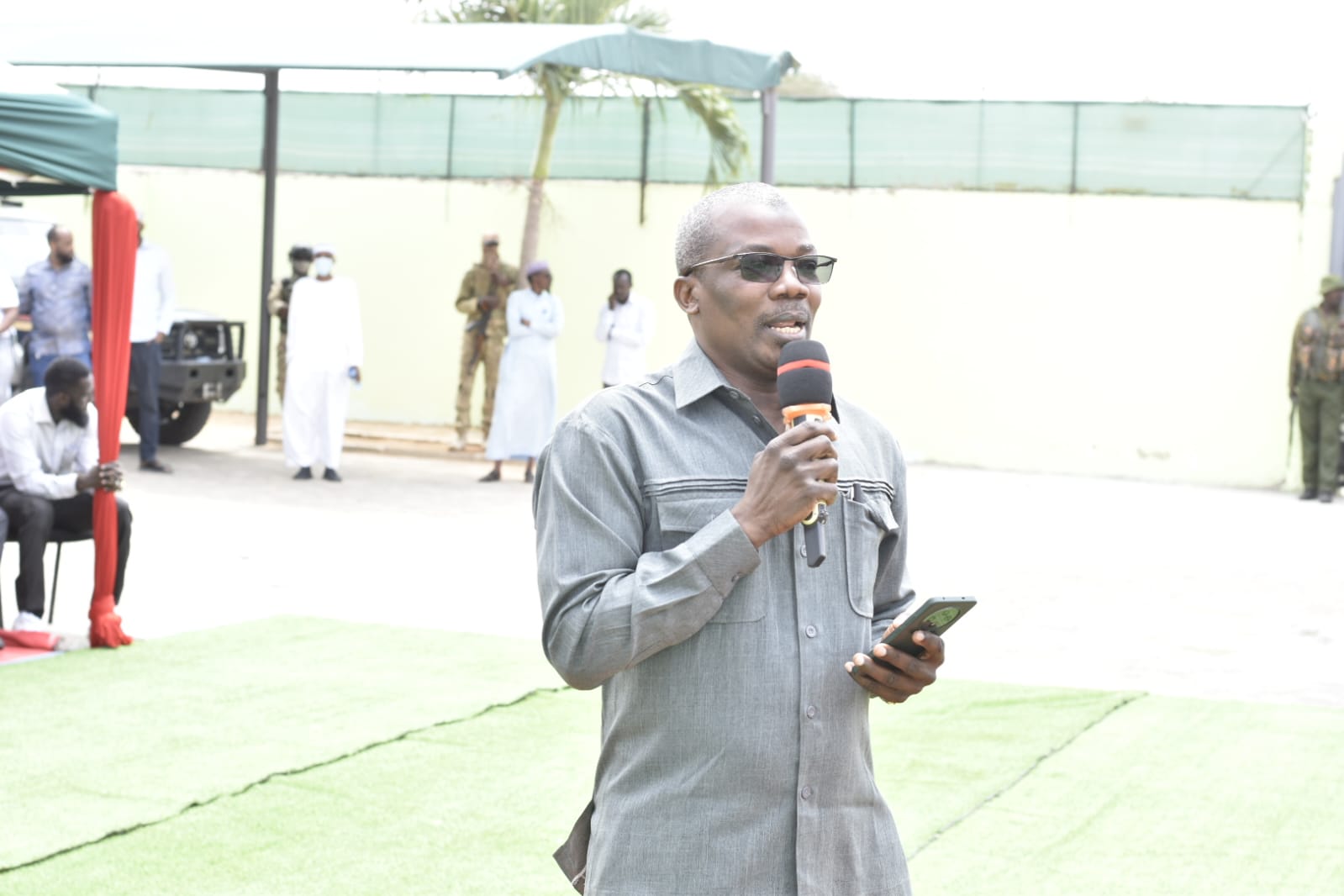

County commissioner Mohamed Mwabudzo in Garissa town
Parents in Garissa county have been urged to remain vigilant amid a sharp rise in human trafficking across Northeastern region that has sparked growing concern among local leaders and communities.
Speaking in Garissa town, county commissioner
Mohamed Mwabudzo warned parents, guardians and community members not to fall
into the trap of traffickers who prey on vulnerable youth with false promises
of education, jobs or better opportunities outside the region.
Mwabudzo, who was accompanied by the county
security team, revealed that security agencies had recently arrested several
individuals linked to a trafficking syndicate and warned that more arrests were
imminent.
His comments followed a recent incident in
Masalani, Ijara subcounty, where police arrested six men suspected to be part
of a trafficking network. The suspects were found hiding in a house in
Gumarey, two kilometres from Masalani town.
Among those arrested were five young men aged
between 18 and 24, four of them refugees from the Hagadera refugee camp, and one
Kenyan from Saretho in Dadaab subcounty. The sixth suspect, believed to be the
trafficker, was arraigned and released on bond.
“In the past few weeks, we have seen a
trafficking network actively operating in our region, targeting innocent
children with deceitful promises,” Mwabudzo said. “What follows are disturbing
videos posted online showing our sons being beaten and subjected to inhumane
treatment. We must not let this continue.”
He urged parents to closely monitor their
children's whereabouts and report any suspicious individuals or offers related
to education or employment to the nearest chief, police station or his office.
“To those behind these criminal networks, your
days are numbered,” he warned. “The government will deploy all available
resources to track you down and ensure you face the full force of the law.”
Garissa County Police Commander Amos Ambasa urged parents not to neglect their
responsibilities.
“Children are a blessing from God. But
parenting doesn’t end at birth—you must walk with them through every step of
their lives,” Ambasa said. “Let us unite to fight this threat. Protecting our
children is not only a moral duty; it is a sacred responsibility.”
ODM nominated MP Umulkheir Harun, speaking at
a recent public forum, described the growing human trafficking crisis as a
national emergency—particularly in pastoralist and marginalised communities.
“Many of our students who should be pursuing
college and tertiary education are instead being lured into trafficking routes
overseas,” she said.
The International Organization for Migration has also raised the alarm over Kenya’s growing role as a source, transit
point, and destination for human trafficking. According to IOM, many children
are trafficked domestically for forced labour, begging, and sexual
exploitation.
Internationally, young people from northern
and coastal Kenya are being trafficked to the Middle East, South Asia, and
parts of Europe, often through fraudulent recruitment schemes disguised as job
placements.
IOM attributes the crisis to a combination of
poverty, lack of access to education, high unemployment, and weak enforcement
of anti-trafficking laws.
As the crackdown continues, local leaders are
calling on families, communities and institutions to remain alert and
proactive in protecting the region’s youth from exploitation.
INSTANT ANALYSIS
The rise in human trafficking cases
in Garissa and the broader Northeastern region signals a growing humanitarian
and security crisis. Vulnerable youth are being lured with false promises of
education and jobs, only to face abuse and exploitation. The involvement of
refugees and local youth underscores deep socio-economic challenges, including
poverty, unemployment, and lack of awareness. Government crackdowns are
critical, but long-term solutions must involve community vigilance, stronger
law enforcement, and targeted public education campaigns.












